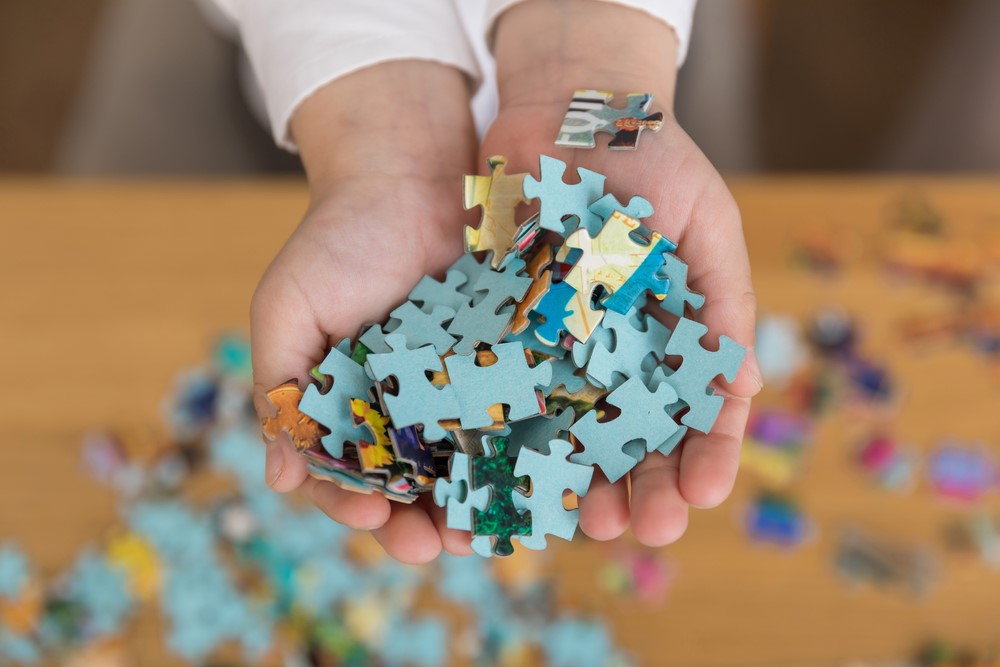
5 Tips and Tricks for Completing a Jigsaw Puzzle Quickly and Efficiently
Jigsaw puzzles are a great way to relax, unwind, and challenge your mind. However, completing a jigsaw puzzle can sometimes be time-consuming and frustrating. If you want to improve your puzzle-solving skills and finish puzzles more quickly and efficiently, here are five tips and tricks to help you:
1. Sort and Organize
Before you start assembling the puzzle pieces, take some time to sort and organize them. Separate the edge pieces from the interior pieces and group pieces with similar colors or patterns together. This will make it easier for you to find the pieces you need as you progress through the puzzle.
2. Start with the Edge
Always begin by assembling the edge pieces first. Look for straight edges and corners to form the frame of the puzzle. This will provide a clear boundary and structure for the rest of the puzzle. Once you have the edges completed, it will be easier to fill in the interior sections.
3. Sort by Colors and Patterns
If the puzzle has distinct colors or patterns, sorting the pieces based on these characteristics can be helpful. Look for pieces with similar colors or patterns and work on those sections separately. By focusing on smaller sections at a time, you can make progress more quickly and efficiently.
4. Use the Picture on the Box
Referencing the picture on the box can provide valuable clues and guidance while solving the puzzle. Pay attention to the details, such as specific shapes, objects, or color combinations. Use the picture as a reference to match the pieces and determine their correct positions.
5. Look for Connector Pieces
Connector pieces, also known as "bridging" or "linking" pieces, can be instrumental in bringing different sections of the puzzle together. Look for pieces with tabs or slots that appear to connect two separate sections. Finding and placing these connector pieces early on can help you merge different parts of the puzzle more efficiently.
6. Work on Sections with Clear Patterns
If your puzzle has areas with clear patterns or distinct objects, consider tackling those sections first. These sections often provide a starting point where you can quickly identify matching pieces based on the pattern or object details. As you complete these sections, it will give you a sense of progress and motivation to continue.
7. Rotate and Try Different Combinations
Don't be afraid to rotate puzzle pieces to different orientations or try various combinations to see if they fit. Sometimes a piece may seem like it doesn't fit, but with a slight rotation, it can align perfectly. Experimenting with different orientations and combinations can help you find matches that might not be immediately obvious.
8. Take Breaks and Refresh Your Mind
If you find yourself getting frustrated or stuck, it's essential to take breaks. Stepping away from the puzzle for a while can give your mind a chance to reset. When you return, you'll have a fresh perspective and may notice connections or patterns that you missed before.
9. Collaborate with Others
If you're working on a puzzle with friends or family, consider collaborating on different sections. Assign specific areas or colors to each person, allowing everyone to work independently on their assigned section. This approach can significantly speed up the puzzle-solving process and make it more enjoyable as you work together towards a common goal.
10. Practice and Enjoy the Process
Like any skill, solving jigsaw puzzles takes practice. The more puzzles you complete, the more familiar you'll become with different techniques and strategies. Remember to enjoy the process and the satisfaction that comes with placing the final piece. Puzzles are not only a challenge but also an opportunity for relaxation and mindfulness.
Remember, completing a jigsaw puzzle is meant to be enjoyable and challenging. Take breaks if you feel stuck or overwhelmed, and return with a fresh perspective. Practice these tips and tricks to improve your puzzle-solving skills and develop a more efficient approach. With time and experience, you'll find yourself completing jigsaw puzzles with greater speed and confidence.






